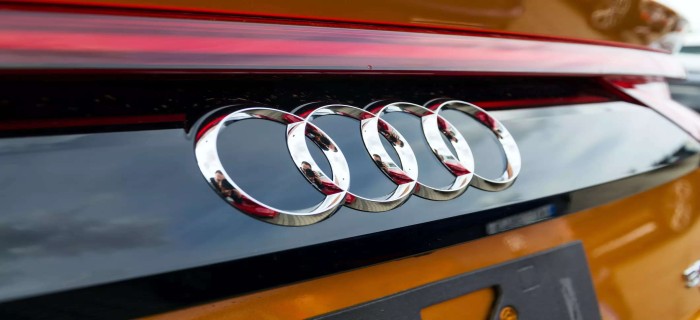
Audi has a requirement before it would introduce more electric vehicles in India.
19 Sep 2023
Volkswagen-owned Audi's India unit said on Friday that any potential cut down on electric vehicle (EV) import taxes would help the German carmaker experiment better with models and pricing in the world's third-largest car market.
"If we get a window of three to five years where the government is able to reduce the duties, it will let us experiment what models make sense for India and help in terms of pricing points," Audi India head Balbir Singh Dhillon told Reuters on the sidelines of a showroom launch in Bengaluru.
Reuters reported last month that the Indian government is working on a new EV policy that would slash import taxes for automakers that commit to some local manufacturing.
Dhillon said that the India arm is in talks with the German parent to initiate assembling "some" of its electric cars locally, but declined to provide details on timeline or potential models.
Audi is trying to catch up with its peers, BMW and Mercedes, in the transition to electric. Currently, the company's India arm only makes internal combustion engines locally, which is used in its petrol cars.
India's commerce minister, Piyush Goyal, said earlier in the week that the government will consult with the industry and come out with a new policy to attract greater EV investments.
The efforts come as India pushes towards greener mobility, with the government hoping to increase electric car sales to 30% by 2030 from current nascent levels of 2%. Of this, luxury EVs are a fraction.
After four models launched last month, six out of 16 models in Audi India's offerings are electric cars, which are entirely imported and sold in the country priced between $136,000 and $234,000.
The latest buzzword in EV Inc? Women buyers
Tata Motors, the country's largest electric carmaker, said women account for 24.
One out of every four electric vehicles sold in the Indian market is bought by a women more than double the share of female buyers of petrol and diesel cars.
Senior industry executives ET spoke with said ease of driving and ownership along with increasing environmental awareness are propelling many women to choose electric cars over those powered by petrol and diesel. With more women joining the workforce and becoming financially empowered to make decisions, the trend is expected to continue, they added.
Tata Motors, the country's largest electric carmaker, said women account for 24% of its EV sales while its closest rival MG Motor India put the number at 23-24%. In contrast, women's contribution to sales of fossil-fuel cars in the country remains in the range of 119% to 129%.
Tata Motors and MG Motor together account for about 85% electric passenger vehicles sold in the country.
"The performance and the ease of owning them (EVs) is making them appeal to women," said Gaurav Gupta, deputy managing director of MG Motor India.
Electric vehicles by default are automatic, peppy, and great in terms of driveability, he said.
Low maintenance an advantage
"They are easy to maintain, entail no visits to the petrol pumps and few visits to the service station for maintenance," Gupta said.
Shailesh Chandra, managing director of Tata Motors Passenger Vehicles and Tata Passenger Electric Mobility, said the proportion of omen buyers opting for electric powertrains is double compared to 11-12% for petrol and diesel variants.
"We are seeing healthy traction for electric vehicles from the top seven metros - Delhi, Ahmedabad, Mumbai, Pune, Hyderabad, Bengaluru and Chennai," he said. "Beyond that, the momentum is strong in Kerala. It is the second-largest state in terms of sales of electric vehicles with consumers in the mainstream segment also opting for the (electric) powertrain."
Tata Motors which sells EV versions of hatchback Tiago, sedan Tigor and SUV Nexon in the personal car segment - is "gunning for 100,000 units (in sales) this fiscal and so far is on track", Chandra said.
He said overall industry sales "should more than double over last year". About 55,000 electric passenger vehicles were sold in the local market in FY23.
Tata Motors plans to double its portfolio in this category with the launch of Harrier EV, Punch EV and Curvy EV over the next few months.
Chandra said electric vehicles account for 14-15% of sales at Tata Motors, which is expected to go up to 25% by 2027 and 50% by the end of the decade.
MG Motor expects 25-30% of its sales to come from electric vehicles in 2023, buoyed by the launch of its second EV model - hatchback Comet EV. Its other model in the market is ZS EV, an SUV.
At the higher end of the market, luxury carmaker Mercedes Benz is seeing nearly 15% of its sales for electric vehicles coming in from women buyers.
"Overall, we register about 15% of our sales from women buyers. For EVs, too, despite these being recent launches, the trend is similar at 13-1596," said Santosh Iyer, managing director of Mercedes Benz India.



leave your comment